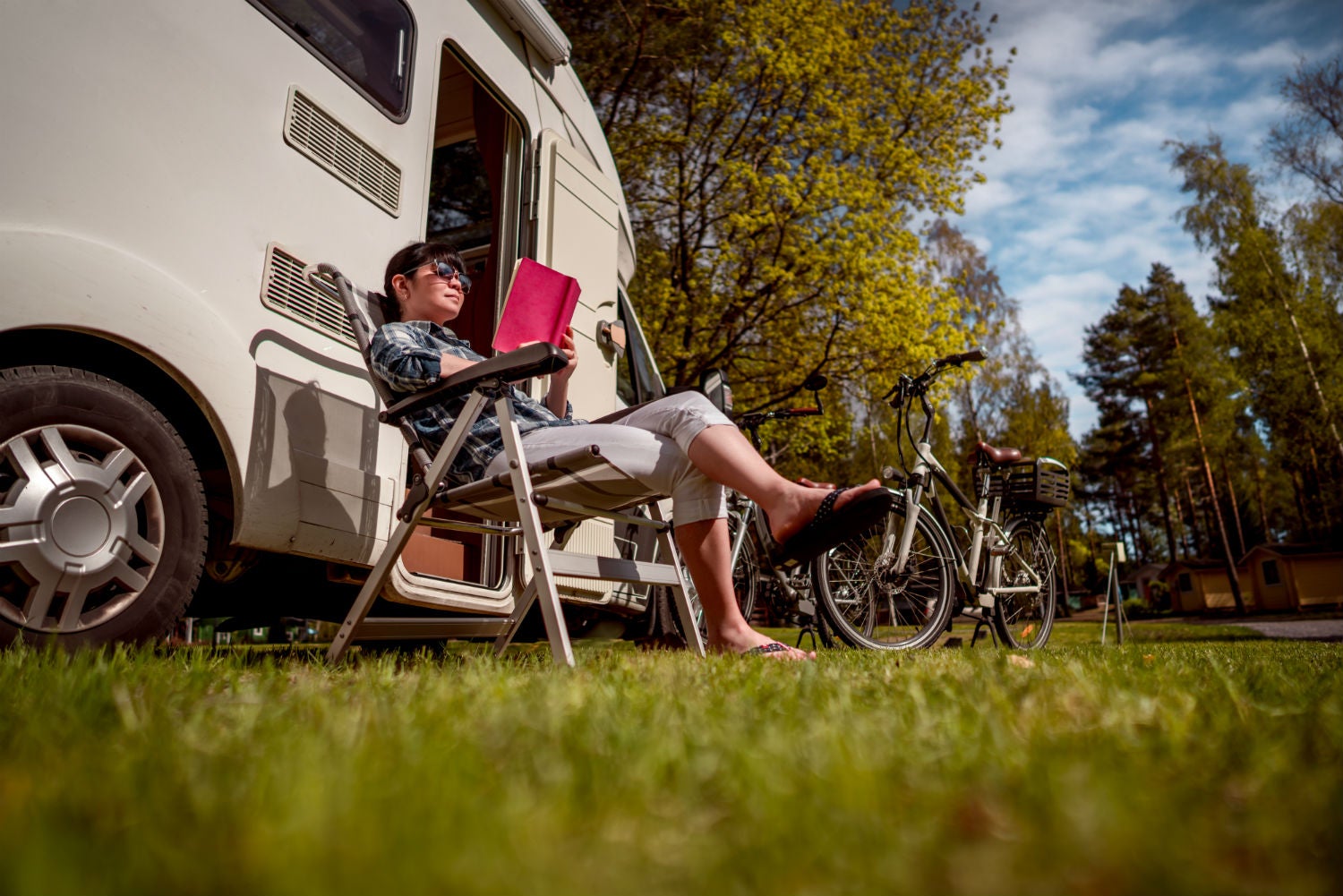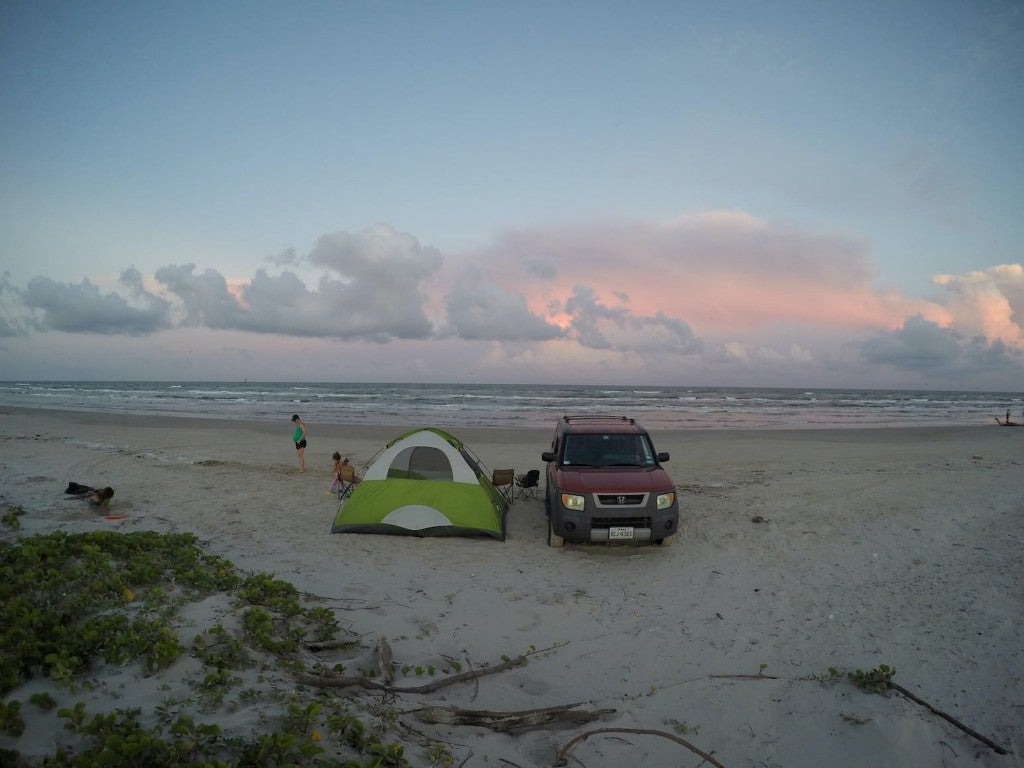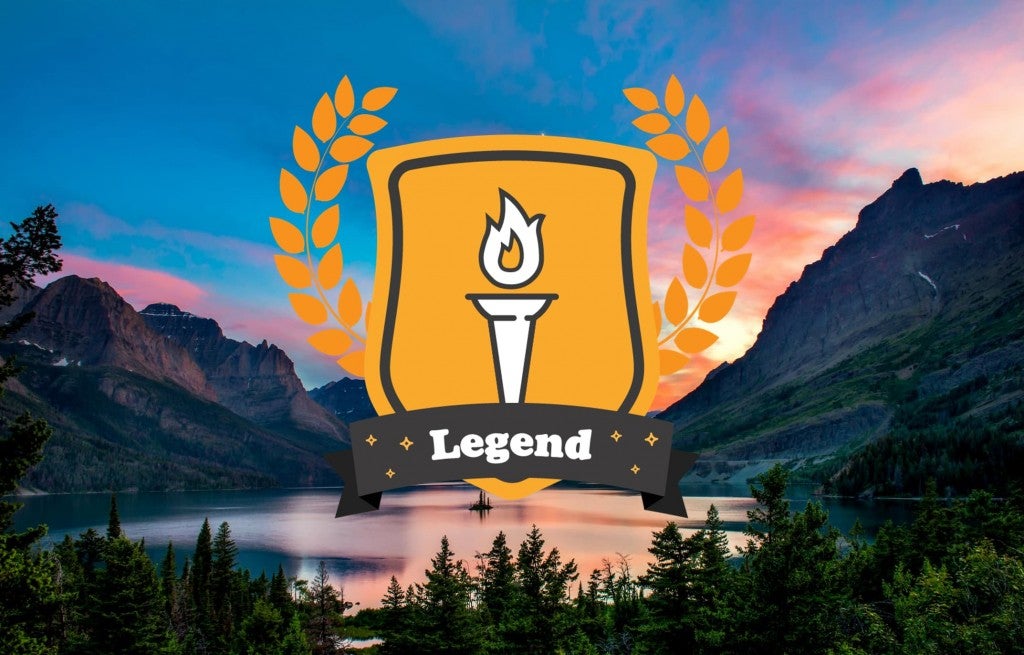This article is brought to you by Banner & Oak, a company with deep expertise in headwear. Their ladies hats are the perfect addition to your next camping trip.
We asked two campground hosts for camping tips and how to be better campers.
The allure of camping is wrapped up in the way we can temporarily remove ourselves from the outside world. We relax, immerse ourselves in nature, and hopefully step away refreshed. However, while we’re busy soaking it all in, we can’t forget that campgrounds are in fact spaces that we share with fellow campers.
That is where hosts step in to help. These individuals work hard (sometimes on a volunteer basis) to enforce the rules, answer camper’s questions, and share information about the local area. Camp hosts are experts at camping and campground etiquette. They also see a side to camping that most of us never see – the amount of work that goes into making it a welcoming, comfortable, and safe place for everyone.
So we wanted to know from the experts: What camping tips do you have for us to be better campers and make the campground a happier place for everyone, including hosts?
Meet the Camp Hosts
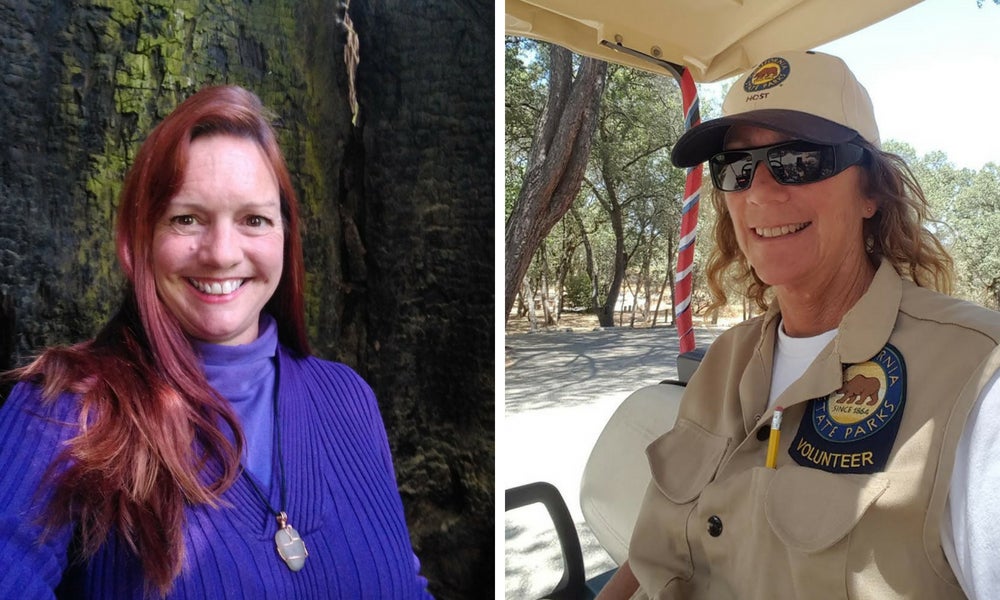
Campground hosts Brenda and Stacey.
We talked to Brenda and Stacey, two camp hosts from California with lots of camping tips to share.
Stacey has been a campground host for over two years at Lake Oroville Recreation Area, specifically the Loafer Creek Campground, in California. She loves what she does and hopes that people know that her goal as host is to make sure that visitors enjoy themselves. “I’m not the bad guy. I am there to help.”
Brenda has been a camp host for a little over a year at Gualala Point Regional Park Campground on the Sonoma County coast of California, where she says “the coastline views are spectacular!” She wants people to know that hosts, like her, are available onsite to support fellow campers. “I feel like it’s an us against them (situation) sometimes and it shouldn’t be. We are the same as the campers – we just found a way to not go home!”
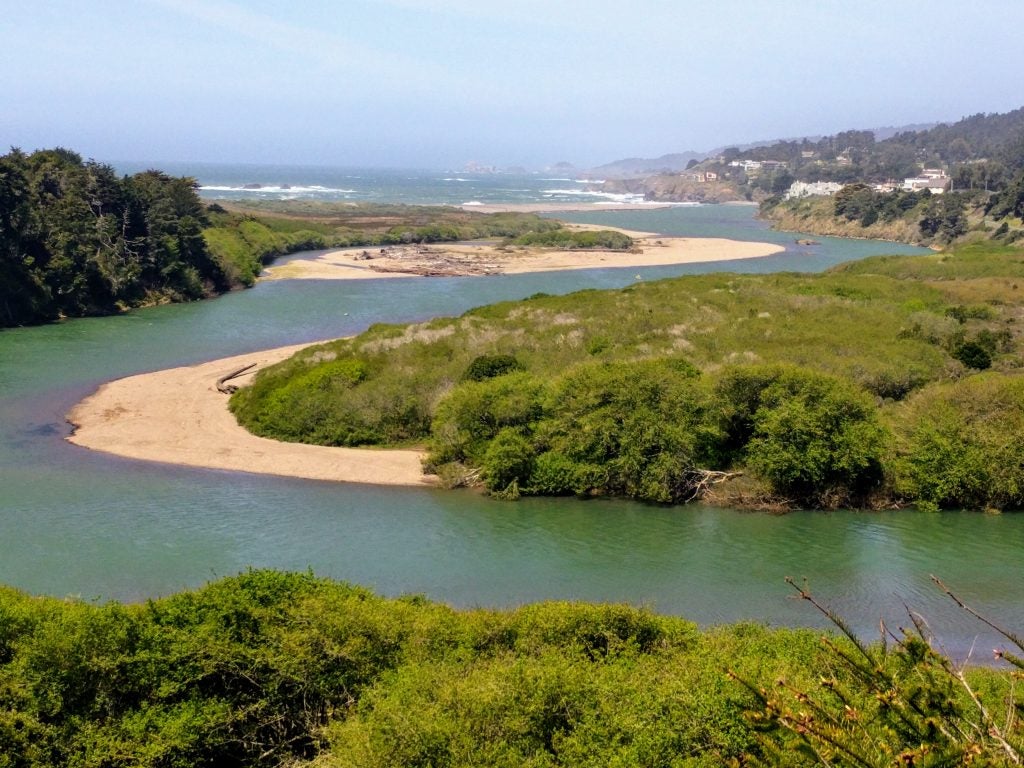
Photo by Brenda
Stacey and Brenda are kindly sharing their expert camping tips, to help us all be better campers:
Make a List
Before you begin packing, and definitely before you leave home, make a list of the gear you will need. Keep in mind your own specific needs, the location of the campsite, and how long you will be gone.
Stacey has noticed that people often forget firewood. Some campgrounds do require that you purchase firewood on site, but others don’t provide it and have rules against collecting.
If you plan on having a campfire fire, it’s a good idea to check on firewood availability at the campground before you arrive, and whether or not you should bring your own. When bringing your own firewood, make sure to purchase it as close to your camping destination as possible. Dontmovefirewood.org recommends only using wood that was cut within 50 miles of where you’re burning it to prevent the spread of invasive insects or disease.
Brenda suggests that campers always bring mosquito repellent. “The good stuff, with Deet. Mosquitoes appear in the most unexpected places.”
“I feel like it’s an us against them (situation) sometimes and it shouldn’t be. We are the same as the campers–we just found a way not to go home!”
Check-In and choose a site properly
When you arrive, the first order of business will be selecting your site. If you made a reservation online in advance (always a good idea, especially during the summer), you can go right to your spot. If you don’t have a reservation, Brenda says that you should check the reservation board, which should be located near the entrance to the campground. You might see an empty site, but don’t start setting up until you have checked the board and verified that it isn’t taken.
“If there are open sites, be sure they will be open the whole time you plan to stay,” recommends Brenda. “The site may only be available for one night.” If the site is open for the amount of time you plan on staying, then it’s all yours.
If the campground requires a fee, pay it. The fees go towards the upkeep of the campground so that people can keep enjoying it for years to come.
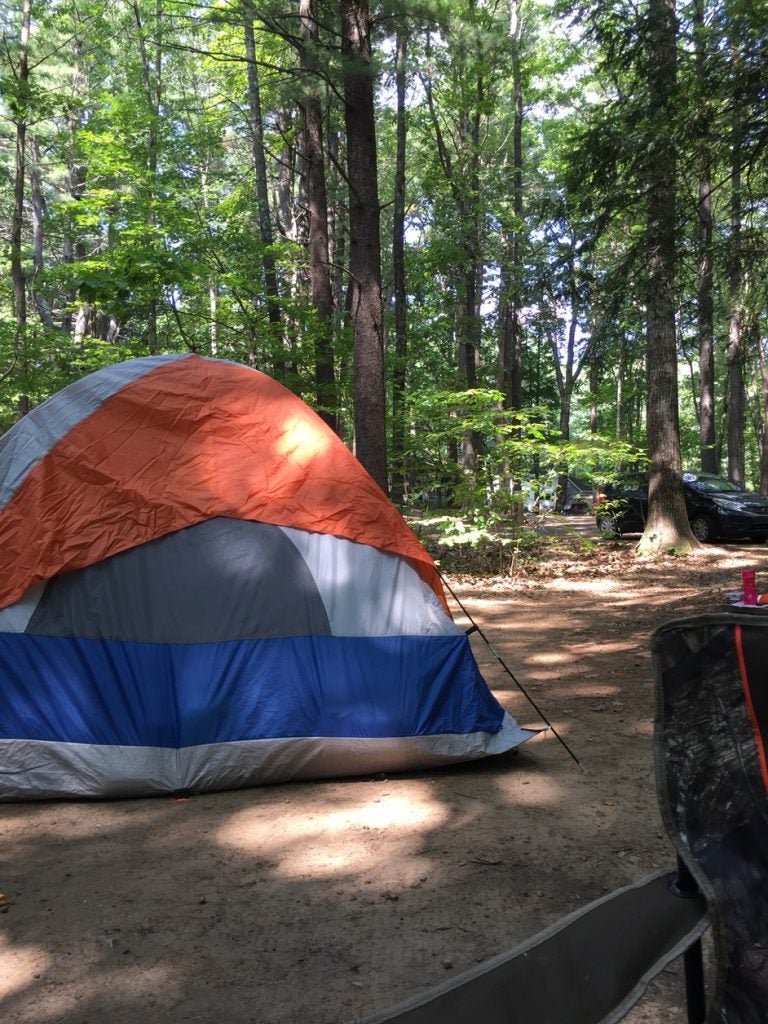
Photo by The Dyrt camper Christine B.
Know the rules
“It is the responsibility of the camper to familiarize themselves with the rules,” says Brenda. The rules within the campground are typically posted on the information board at the entrance or on the website.
Some rules are in place specifically for safety. Unfortunately, these rules are often broken according to Stacey, including: people arriving late and not paying, pets and kids being left unattended, trash getting left out, and drinking while driving. If you see any of these things, Stacey says it’s a good idea to report it to the camp host.
Brenda also suggests that campers research different campgrounds to make sure they find one that meets their expectations. If one campground doesn’t allow drinking for example, and you want to bring beer, find one that does allow alcohol to avoid breaking the rules.
If you aren’t sure about something, just ask.
One of the main roles of a camp host is to help campers whenever something is unclear or unspecified. If you haven’t been to a particular site before, you might be wondering things like: where are the bathrooms, where can I find water, where can I take garbage, or even where should I go explore?
Hosts are happy to provide camping tips and other guidance. Stacy says that she wishes people would “ask instead of assume things.” It will save the campers time, and Stacey says that she also just wants to know everyone has what they need during their stay.
Be mindful of your neighbors
When everyone is around the campfire laughing and telling stories, things can sometimes get noisy. We’ve all been there. Everyone just wants to have fun. During certain hours, talking, laughing, and singing is great and even encouraged. However, many campsites have quiet hours, where voices, music, and everything else should be kept down as much as possible. After all, many of us are camping to find some solitude. Keeping noise to a minimum allows everyone within the campground to sleep if and when they want to – or simply enjoy some peace and quiet.
Stacey points out that even running generators can be “really loud and disruptive.” If you have one and can’t camp without it, try finding a campsite farther from the others, or running it only during the day.
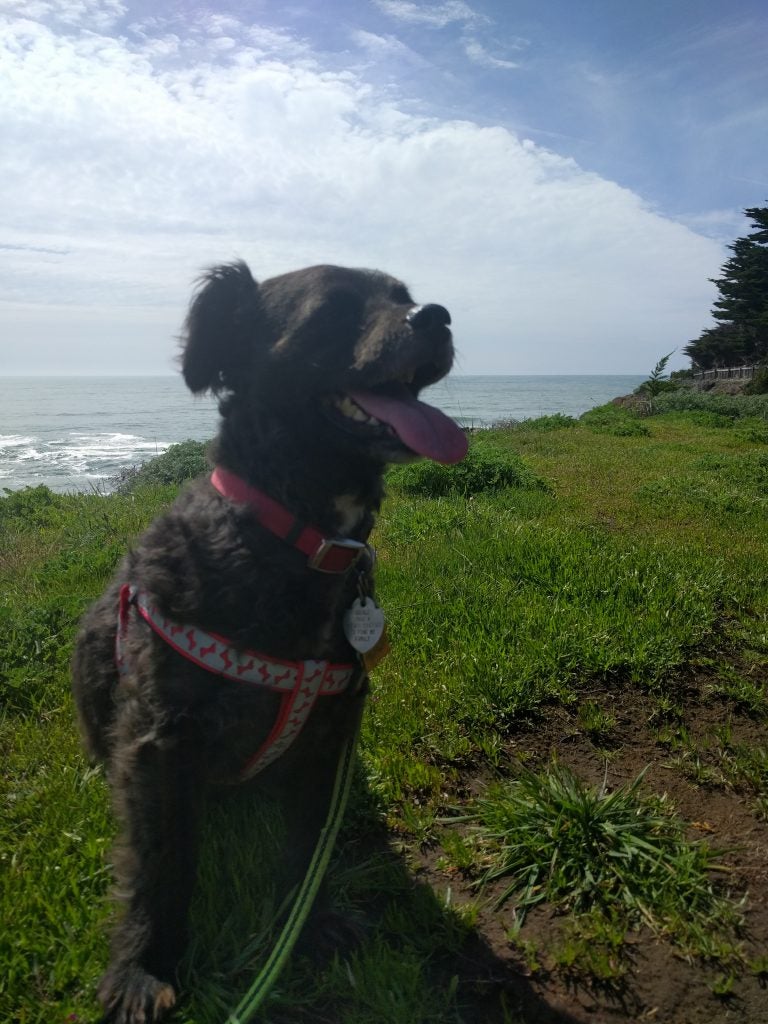
Image by Brenda
Watch Your Pets
People often bring dogs camping. Some people even bring their cats! We think that is great. They love the outdoors, you love the outdoors – it can be an ideal situation for you both.
But there are a few camping tips to keep in mind if you want to bring your pet. In general, keeping them with you, cleaning up after them, and making sure they aren’t intruding on other campers are all expected pet camping etiquette.
Consider how comfortable your pets will be at a campground. While some dogs will love the experience, others might find it stressful or overwhelming. Keep in mind how long they will be comfortable away from home and whether or not they do well around strangers.
“One or two days might be all they (pets) can handle,” says Brenda. “They will meet other dogs and lots of people including curious children. Make sure they can handle the interaction.”
Related Reading:
The 5 Least Dog-Friendly National Parks and Where to Camp Instead
Mind Your Fire
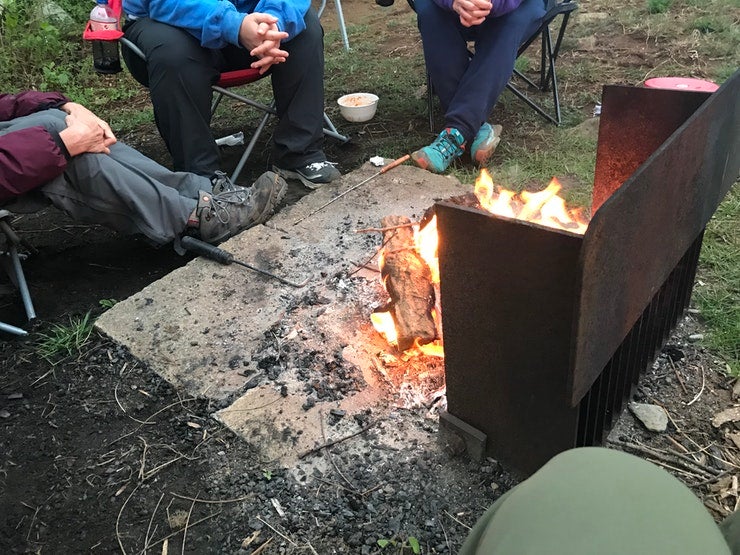
Image from The Dyrt camper Jessica C.
First and foremost, make sure that fires are allowed in your campsite while you’re there. Where and when fires are allowed can change seasonally, while some places might not allow them at all. This information can be found on the specific campground, state park, or national park website, as well as the information board at the campground.
Brenda reminds us, “Don’t burn anything but firewood in the fire pits. There are plenty of trash cans to use within the campground.”
Bike in the right places
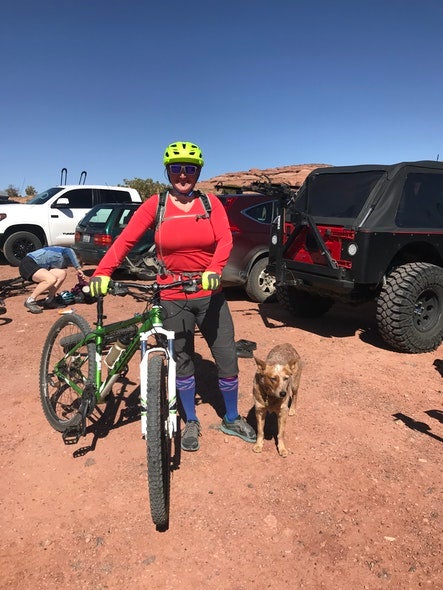
Image from The Dyrt camper Jenny R.
You can find a lot of amazing mountain biking trails near campgrounds. However, there are a few considerations here. First, aside from designated bike trails, bikes, or anything with wheels, should be kept on pavement only. They can cause damage to trails that are not designed for wheels.
Also keep speed in mind when biking on the paved roads in a campground. Most campsites have a speed limit that ranges between 5 and 10 mph, and it is in everyone’s best interest to maintain that standard when riding.
Check again before you leave
Stacey says that you should always look through your site for any hidden garbage or gear before you head out. The most important of all camping tips, after all, is to leave no trace. “If you brought it in, take it out,” adds Brenda. “Ask for a trash bag if you need it. I will gladly provide.”
This is a great time to also make a list of the things you forgot on this camping trip, so you don’t forget them next time, suggests Stacey. As you are cleaning and packing up, you can also notice things that didn’t need or didn’t use, or ways that you might reduce the amount of garbage you create on your next trip. Bringing only what you needs means less clean-up for you, and less garbage for hosts to deal. Consider bringing reusable containers and fewer prepackaged foods.
Related Reading:
The Camper’s Guide to Wasting Less Food
Most importantly, have fun!
Brenda’s camping tips: “Breathe. Relax. Sit down and chill. Hike.”
If you aren’t familiar with the area, feel free to ask your camp host. “I love educating visitors on the natural wonders of the area they are visiting,” says Brenda. This includes “pointing out a rare plant, telling them the history of the area. Guiding them to the hidden gems they might overlook if left to their own devices.”
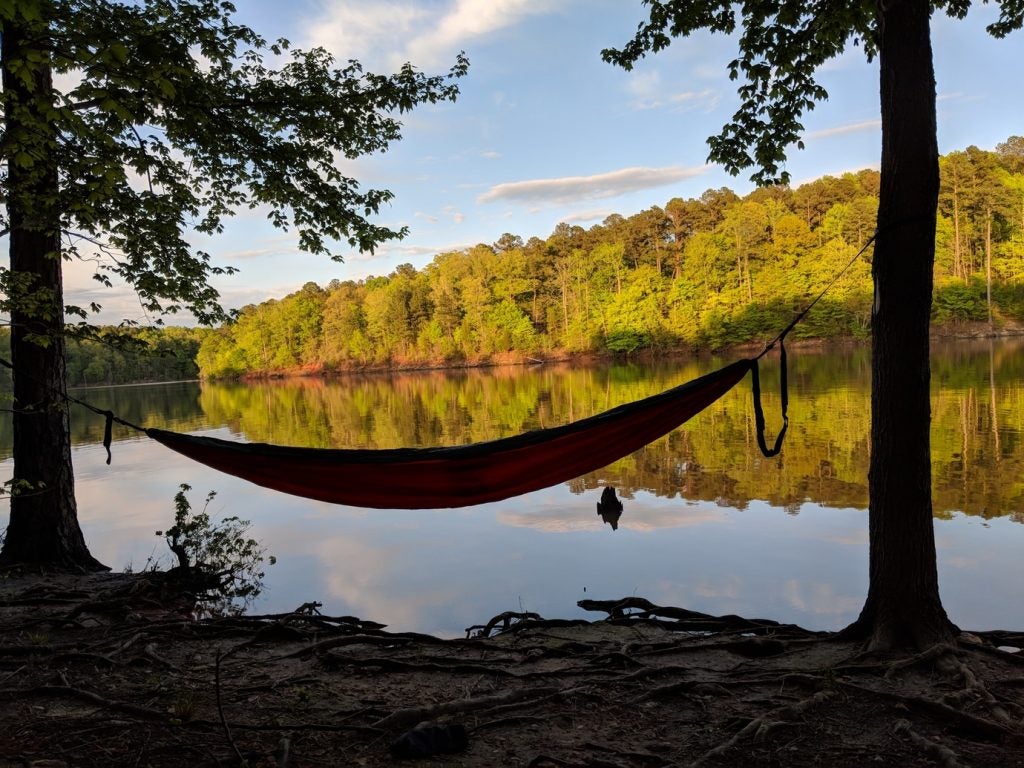
Photo by The Dyrt camper James H.
Interested in Becoming a Campground Host?
Stacey and Brenda, both became hosts because, like you, they love camping. If you enjoy the outdoors and wouldn’t mind spending long periods of time looking after a campground, then hosting might be a good fit for you.
If you’re interested in learning more, here are a few of Stacey and Brenda’s camping tips for prospective hosts:
“It all depends on where you work, but decide how much work you want to do and how involved you want to be,” says Stacey. “There are many different levels of camp hosting. With California State Parks they have employees to clean, check in campers, etc. If there were any problems I have a two-way radio (walkie talkie) to call the Ranger and they would handle it.”
“Do your research,” adds Brenda. “Ask lots of questions, like how close is town? Is there cell service and/or internet? Are children welcome? Is it volunteer or paid?”
This article is brought to you by Banner & Oak
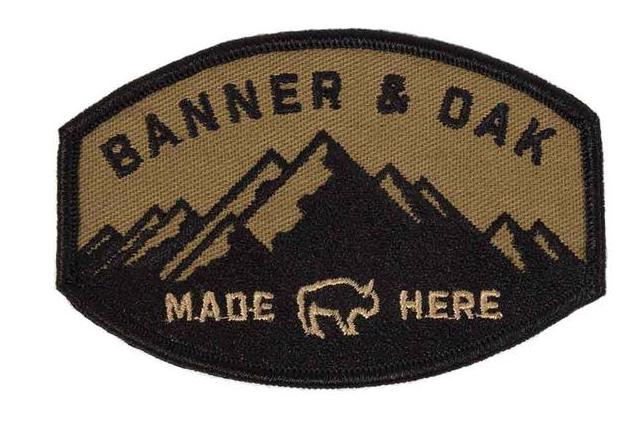
Their snapback trucker hats is the perfect addition to your next camping trip.
The Dyrt is the only camping app with all of the public and private campgrounds, RV parks, and free camping locations in the United States. Download now for iOS and Android.Popular Articles:
Articles on The Dyrt Magazine may contain links to affiliate websites. The Dyrt receives an affiliate commission for any purchases made by using such links at no additional cost to you the consumer.

